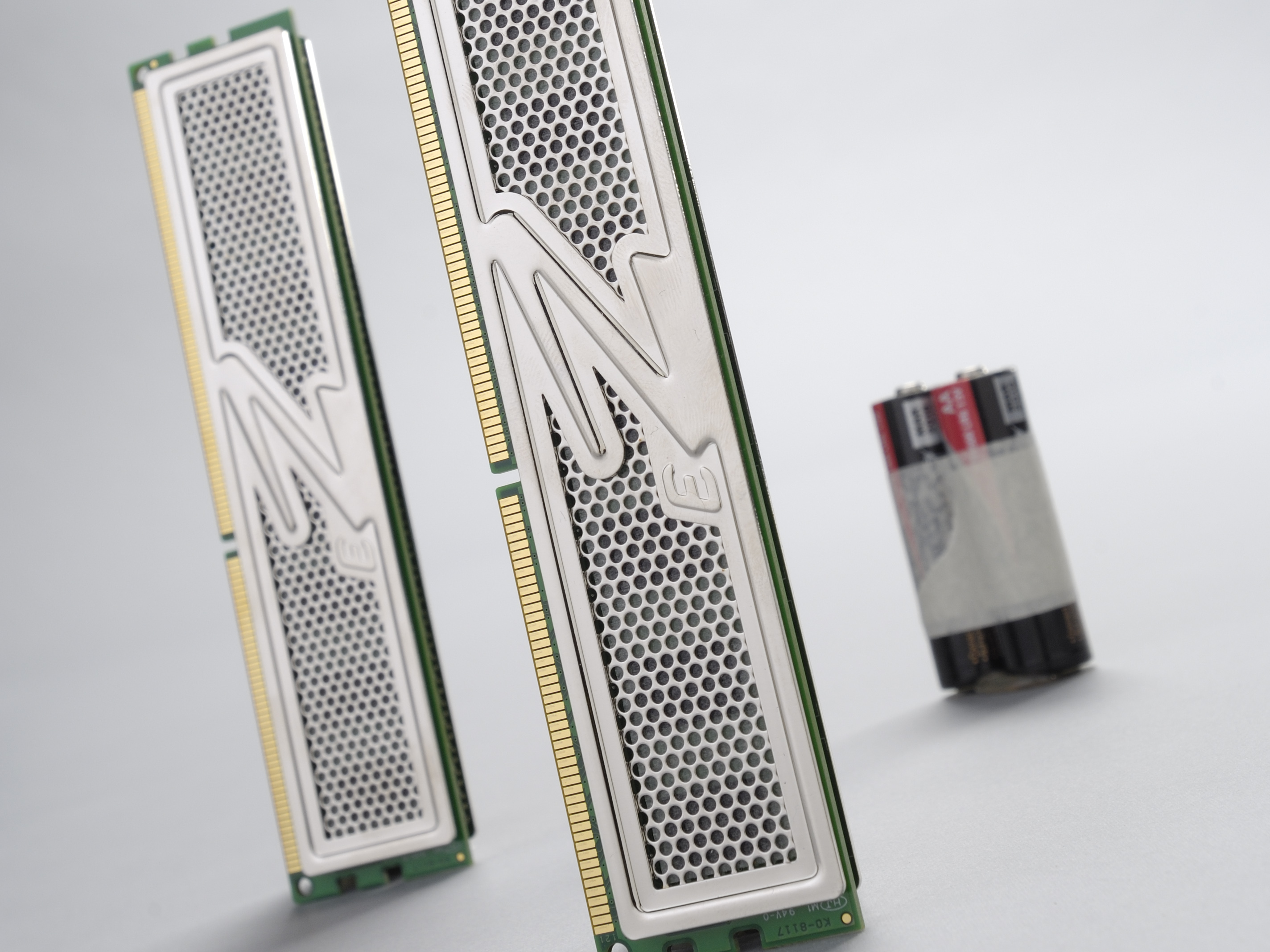TechRadar Verdict
Enough performance and overclocking headroom for all but the most demanding enthusiasts. Great value.
Pros
- +
Nice all-round spec
- +
Excellent performance
- +
Plenty of overclocking chops
Cons
- -
Not a lot
Why you can trust TechRadar
Two sticks of RAM. A couple of gigabytes a piece. That's very much the standard memory configuration for the modern PC. After all, the reality for many PC buyers is that Intel's high-end LGA 1366 platform and its triple-channel memory interface is overkill. You get better value on the desktop with the more affordable LGA 1156 socket and a dual-channel setup.
Odds are, therefore, you're in the market for a 4GB dual-channel kit. But how fast does it need to be and how much money should you spend? The OCZ Platinum 1,600MHz is certainly temptingly cheap.
For just £81 you get a total capacity of 4GB, a decent, if not spectacular, stock frequency of 1,600MHz tight 7-7-7 latency timings and some slick-looking silver heat spreaders. What's not to like?
Certainly not the price. £81 compares favourably to kits such as the AData Extreme 2000MHz and the Geil Evo Two 2000MHz. The latter is over £50 more expensive.
Compared to more expensive dual-channel DDR3 memory kits, the OCZ Platinum 1,600MHz conspicuously lacks extensive cooling. Yes, each memory DIMM is sandwiched between a pair of heat spreaders. But the full-on heat sinks and cooling fins of pricier kits, much less active fans, are nowhere to be seen.
However, that doesn't appear to hurt the benchmark results. At our default 1,333MHz test frequency, the Platinums are among the quicker dual-channel kits, delivering solid numbers in everything from raw bandwidth to hardcore gaming. Crank up the clocks to the advertised 1,600MHz frequency and you get a whiff of extra performance all round.
Well, not quite all round. Multi-threaded throughput in the Cinebench rendering benchmark suffers a little, but you can say that about every kit here. It's one of those little anomalies that sometimes comes with running memory beyond the default chipset speed.
Even more impressive, thanks to the Platinum's low-voltage spec you get that extra throughput without any additional power consumption. Our test platform consumes a rock-solid 200W under load whether running at 1,333MHz or 1,600MHz.
What's more, bump up the volts a bit and you'll see fully 2,000MHz. Nice. Of course, with the increased volts and frequency, the power consumption then jumps to around 230W. But that's par for the course when running extreme clockspeed settings.
More of an issue is the fact that AData's Extreme 2,000MHz kit goes one better and tops out at 2,133MHz, giving it the edge in both bandwidth and gaming performance for just £10 more.
The TechRadar hive mind. The Megazord. The Voltron. When our powers combine, we become 'TECHRADAR STAFF'. You'll usually see this author name when the entire team has collaborated on a project or an article, whether that's a run-down ranking of our favorite Marvel films, or a round-up of all the coolest things we've collectively seen at annual tech shows like CES and MWC. We are one.
